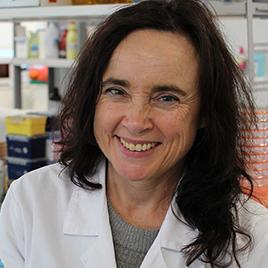Objectives and competences
Specialty discipline of Microbiology, integrating the group of courses aimed at providing the student with a comprehensive perspective of the various subjects of this area (food, environmental, clinical, industrial).
Students should
know the main industrial processes and products from microorganisms;
correlate the nutritional requirements of microorganisms to media formulation, namely for industrial applications;
know the industrial biocatalysts selection and maintenance processes;
analyse bioreactors operating in different regimes;
know the sterilization processes applied to fermentation systems; evaluate and quantify contaminants presence in culture media after heat sterilization;
design experiments and define experimental protocols.
Skills
Use and cultivate microorganisms in batch cultures.
Evaluate the influence of operating conditions in different fermentation systems.
Design, organize and carry out experimental work autonomously.
Team working and group work management.
Oral communication and scientific writing of experimental work results.
Teaching Methodologies
Lectures organized in six different modules: the first five modules analyse generic microbial processes, and the sixth module is focused on specific cases of industrial application of microorganisms (presented by several invited experts).
Practical classes in which students optimize a fermentation process, based on the manipulation of operating conditions (group work).
Syllabus
Lectures:
- Introduction to biological processes
Biological processes, their applications, advantages and disadvantages. Microbial processes: goals; applications; examples. Metabolites with industrial application. - Culture Media
Nutritional requirements of microorganisms. Substrates for industrial processes. Complex nutrient sources. Formulation and preparation of culture media. - Biocatalysts
Most important biological characteristics of biocatalysts. Selection and improvement of industrial biocatalysts. Storage, maintenance and propagation of biocatalysts for industrial conversions. - Fermentation systems
The kinetics of microbial growth and substrate consumption. Limitation and inhibition of microbial growth.
Fermentation systems in batch, fed-batch and continuous. Notions of productivity and yields. Chemostat cultures; influence of dilution rate; reactor wash-out; maximum productivity.
Types of fermenters. - Sterilization
Sterilization of liquids and gaseous media and equipment. Sterilized in batch and in continuous. - Industrial microbial processes
Cases studies: production of starter cultures, algae and derivatives production, production of pharmaceutical compounds.
PL classes
Implementation of various fermentation processes (a different process for each group of students): influence of vitamins on the viability of the yeast; influence of amino acids on the viability of the yeast; lactic acid production; baker's yeast production; liquid probiotic yoghurt production.
Planning experiences. Preparation of the experimental protocol. After verification and approval of the experimental procedure, the groups prepare and carry out the planned experiments.
Manipulation of the operating conditions to optimize the process.
Determination of kinetic parameters, yields and productivities.
Based on the results, the experiments are repeated after following improvements or new experiences are proposed to better describe the issue under study.










